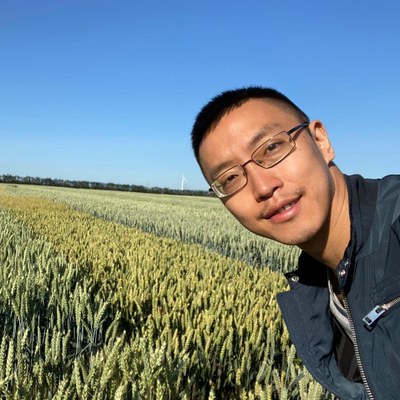Professur Intensive Plant Food Systems
Our group works on understanding physiological functions of horticultural and agricultural crops (winter wheat, vegetable and fruit trees) and how these functions can be improved by plant breeding. We focus on:
- light-induced physiological responses, including photosynthesis, stomatal regulation, photo-acclimation and morphogenesis;
- interactions between light and other abiotic factors and deciphering these interactions using mechanistic models;
- up-scaling the environmental effects on leaf level to canopy level;
- breeding history of Germany winter wheat; and
- nitrogen uptake and partitions in vegetable crops
We use modelling approaches and systems analyses as powerful tools in modern plant science to obtain a systems-understanding of the plant functions, to explain and to predict the physiological phenomenon which are not straightforward for experimental biologist. We have interdisciplinary collaboration partners including computer scientists, mathematicians and crop geneticists. Besides classical modelling approaches, we are specialized in functional-structural plant models, where the triple feedbacks between environmental triggers, dynamic canopy architectures and physiological functions can be analyzed.
Further research focusses are model-assisted high-throughput phenotyping and physiological mechanisms optimizing canopy photosynthesis through acclimation strategies.
Head:

Tel.: +49 30 2093-46295
Email: tsu-wei.chen@cms.hu-berlin.de
ORCiD: 0000-0001-6698-563X
Twitter: https://twitter.com/TsuWeiChen1
Recently published
- Pao Y-C, Stützel H, Chen T-W (2023): Optimal coordination between photosynthetic acclimation strategy and canopy architecture in two contrasting cucumber cultivars. in silico Plants, Volume 5, Issue 2, 2023, diad014, https://doi.org/10.1093/insilicoplants/diad014
- Sabir K, Rose T, Wittkop B, Stahl A, Snowdon R J, Ballvora A, Friedt W, Kage H, Léon J, Ordon F, Stützel H, Zetzsche H, Chen T-W (2023). Stage-specific genotype-by-environment interactions determine yield components in wheat. Nature Plants. https://doi.org/10.1038/s41477-023-01516-8
- Wang T-C, Casadebaig P, Chen T-W (2023): More than 1000 genotypes are required to derive robust relationships between yield, yield stability and physiological parameters: a computational study on wheat crop. Theoretical and Applied Genetics (2023) 136:34, https://doi.org/10.1007/s00122-023-04264-7
- Huang , Elewa K, Wang T-C, Chen T-W, Wu F-J (2022). Half-Farmer: A Human-Machine Augmented Learning Framework for Seed Germination Recognition in Smart Farming. IEEE 8th World Forum on Internet of Things (WF-IoT)
-
Earley A M, Temme A A, ...: Genomic regions associate with major axes of variation driven by gas exchange and leaf construction traits in cultivated sunflower (Helianthus annuus L.), The Plant Journal, 7/22, https://doi.org/10.1111/tpj.15900
- Wang T-C, Chen T-W (2021). toolStability: Tool for Stability Indices Calculation. R package version 0.1.0. https://github.com/Illustratien/toolStability/ https://cran.r-project.org/package=toolStability
-
Porter A, ..., Temme A, ...: A meta-analysis of responses of C3 plants to atmospheric CO2: dose–response curves for 85 traits ranging from the molecular to the whole-plant level. New Phytologist, https://nph.onlinelibrary.wiley.com/doi/full/10.1111/nph.17802
-
Pao Y-C, ..., Chen T-W,...: How does structure matter? Comparison of canopy photosynthesis using one- and three-dimensional light models: a case study using greenhouse cucumber canopies. in silico Plants, https://academic.oup.com/insilicoplants/advance-article/doi/10.1093/insilicoplants/diab031/6396947
- Early Career Researcher Profile: Tsu-Wei Chen. in silico Plants, Volume 3, Issue 1, 2021
- Snowdon R, ..., Chen T-W, ...: Crop adaptation to climate change as a consequence of long‑term breeding. Theoretical and Applied Genetics, https://doi.org/10.1007/s00122-020-03729-3
-
Reckling M, ..., Chen T-W,...: Methods of yield stability analysis in long-term field experiments. A review. Agronomy for Sustainable Development 41, ArticleNo 27, 2021.
